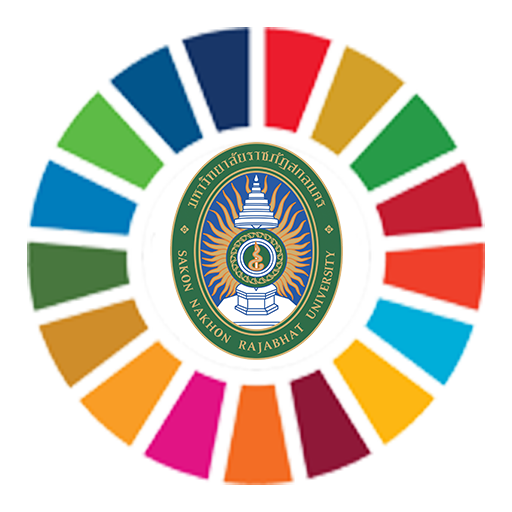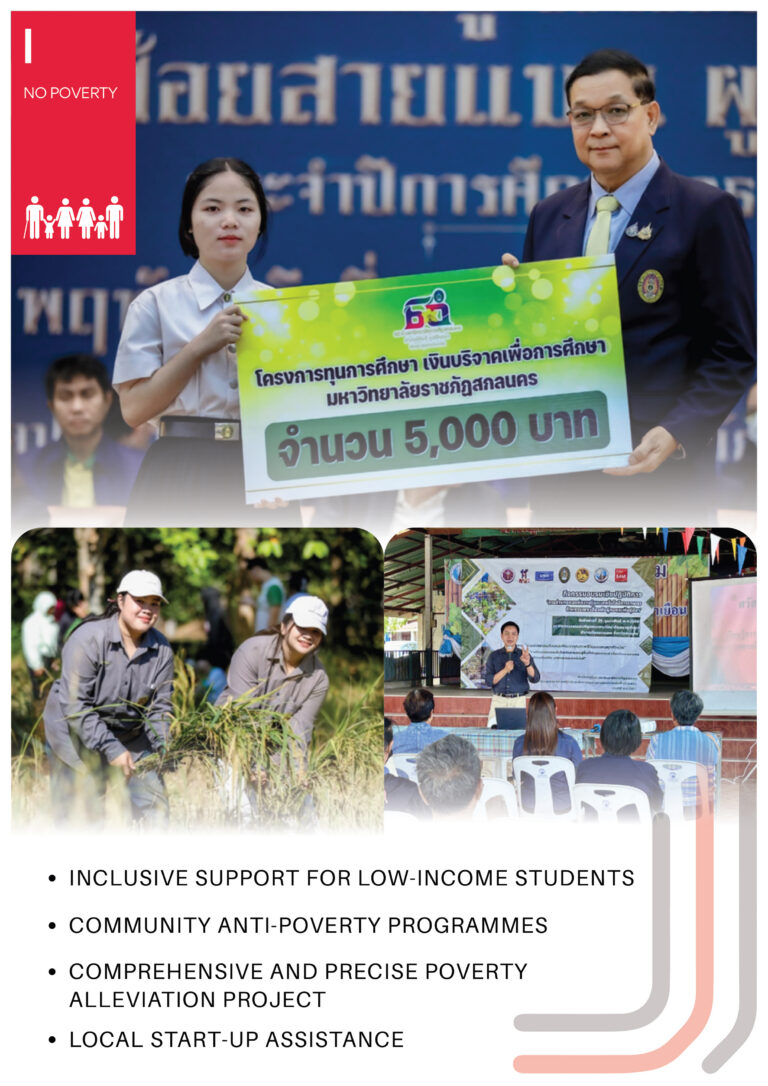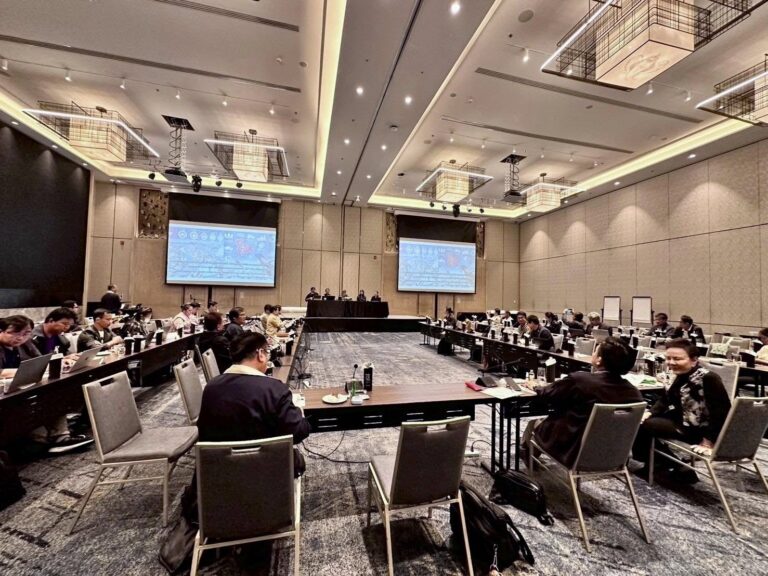Sakon Nakhon Rajabhat University, in collaboration with PhonngamSuksa School, has implemented a program to prevent students from falling into the “NEET group” (Not in Education, Employment, or Training) by using the “Social Engineer” approach. The initiative included a high-value mushroom youth vocational camp held on July 22-23, 2023, aimed at boosting household income and addressing intergenerational poverty. This project aligns with Sustainable Development Goal 1 (SDG1), which focuses on ending all forms of poverty. The event was officially opened by Asst. Prof. Chakrit Chanchitpreecha, Acting President of Sakon Nakhon Rajabhat University.



Sustainable development (SDGs)
The United Nations has classified Thailand as a developing country, a status that has been tied to the issue of poverty for decades. As noted, this struggle has persisted throughout a generation, with some expressing that it has been ongoing “since before I was born until now, at 30 years old.” To address this, the UN has been revising criteria to measure progress towards becoming a developed nation, integrating frameworks such as the Sustainable Development Goals (SDGs).
At the 70th session of the United Nations General Assembly, Thailand endorsed the 2030 Agenda for Sustainable Development, committing to a global framework aimed at achieving 17 SDGs. This agenda reflects the principle of sustainable development, which focuses on meeting present needs without jeopardizing the ability of future generations to meet their own. The phrase “Leave no one behind,” popularized by Thailand’s 29th Prime Minister, General Prayut Chan-o-cha, echoes this commitment. Sustainable development is based on three essential pillars: economic growth, social inclusion, and environmental protection.
- Economic growth (economic growth)
- Social Coverage (social inclusion)
- Environmental Protection (environmental protection)
Emphasizing the right to life in relation to resources, biodiversity, soil, water, energy, and livelihoods in urban communities aligns with Thailand’s national strategy. The 13th National Economic and Social Development Plan serves as a framework guiding agencies to develop projects that support the Sustainable Development Goals (SDGs).
On June 1, 2023, Times Higher Education (THE) released the results of the THE Impact Rankings 2023, which assesses universities’ efforts in supporting the SDGs. Sakon Nakhon Rajabhat University was ranked 1001+ out of 1,591 universities across 112 countries. Assistant Professor Saifon Punhawong, a lecturer in the Department of Political Science and Assistant Dean for Project Management and Budget Planning at the Faculty of Humanities and Social Sciences, leads initiatives related to SDG 1: “End poverty in all its forms everywhere.” She shared that in 2023, efforts will continue under the project “End Poverty in All Its Forms Everywhere (SDG1),” which includes vocational training for youth to boost household income and the use of social engineering strategies. This project is being implemented at Phon Ngam Suksa School, located in Phon Ngam Subdistrict, Akhat Amnuay District, Sakon Nakhon Province.
The goal is to promote learning skills leading to the practice of mushroom cultivation for poor students who have received scholarships from the Equitable Education Fund (EEF), integrating data from the research project on solving poverty problems completely and accurately in Sakon Nakhon Province, Phase 2.3. The local poor household database system (PPP CONNEXT) has the following important objectives:
- To plan to end poverty in all forms everywhere by instilling a vocational mindset in youth in local communities.
- To integrate and create a network for mutual learning between social engineers and local communities.
“Creating and developing vocational skills does not necessarily have to be created only for working-age people. Children and youth can also pursue careers that are appropriate for their age. Mushroom cultivation can generate income or reduce household expenses depending on the context of the community.” By Professor Saifon Punhawong

A. Saifon continued that this operation brought in “social engineers” (Social Engineer, Faculty of Humanities and Social Sciences, Sakon Nakhon Rajabhat University, is a mechanism to drive the work. The process focuses on developing Soft Skills, which is a hands-on cross-disciplinary learning management using local community development as a base (Social Lab Based) to allow students from various fields to participate in area-based problem-solving activities (Area Based), aiming to develop students into graduates who are communicators, coordinators, and community innovators. Sakon Nakhon Rajabhat University, as an institution of higher education for local development, is very important to care about the suffering of communities and local areas and play an important role in creating a better society by using Soft Skills, which are characteristics of social engineers. Mr. Narongrit Khwawongsa, President of the Community Enterprise for Growing Chemical-Free Mushrooms in Ban Sao Wat, was a speaker and provided equipment, technology, and innovation for oyster mushroom production this time. Students will gain professional skills, including mushroom recipe making skills, mushroom spawn packing skills in plastic bags, mushroom spawn steaming skills, oyster mushroom spawning skills, flowering and greenhouse care skills, and accounting skills. Mushroom cultivation can be harvested for 4-8 months per production cycle. It takes a short time to harvest and sell the products. It can be seen that in addition to mushroom cultivation being food security, It can also be a main or secondary occupation to increase household income.
The heart of “mushroom cultivation” is the process of changing from “bad mold to good mold”. If misguided people are given a good opportunity, they can also “change their lives in a good direction”.
Mr. Narongrit Khwawongsa

Supporting Intergenerational Poverty Alleviation
Sakon Nakhon Rajabhat University’s SDG1 project, aimed at “Ending Poverty in All Forms Everywhere,” has shown significant progress through its collaboration with Phon Ngam Suksa School. This initiative successfully cultivated 4,500 oyster mushroom blocks, which are projected to generate approximately 72,000 baht in income from fresh mushroom sales. The project has equipped 50 students with essential skills in mushroom cultivation, enabling them to continue their work within the youth vocational classroom program.
Mr. Thanakorn Kaewbuasa, Director of Phon Ngam Suksa School, highlighted that in 2022, 57 students from lower and upper secondary levels were at risk of dropping out due to irregular attendance. In response, the school launched an “Alternative School” program, allowing students to complete assignments at home, maintaining a minimal grade requirement. This program helped 12 students graduate, showing the school’s commitment to offering career-oriented education, which aligns well with the Youth Career Classroom initiative.
The school’s efforts to provide vocational training also serve as a preventative measure against students becoming part of the NEET (Not in Education, Employment, or Training) group. According to a UNICEF Thailand report from February 2023, the NEET issue is multi-faceted, involving early school dropouts, unemployed youth, and those disengaged from the labor market due to various risk factors such as gender, low education, socio-economic challenges, and migration. Addressing these complexities requires more qualitative data to fully understand the background and needs of the NEET youth demographic, which represents about 15% of Thai youth aged 15-24.


While these efforts alone do not signify Thailand’s transition to a developed nation, they represent a vital model for equipping students with intellectual and vocational skills that can be passed down through generations. The mushroom cultivation vocational classroom supports 21st-century educational needs by fostering “Learn to Earn” models, which blend learning with income-generating activities. This promotes lifelong learning and entrepreneurial skills, crucial for youth development in today’s economy.
During a speech on June 26, 2023, Prof. (Special) Dr. Anek Laothamatas, Minister of Higher Education, Science, Research, and Innovation, expressed support for such initiatives. He emphasized that education has the power to lift people out of poverty, noting that many of today’s elites overcame their families’ economic challenges through education and perseverance. This acknowledgment underlines the importance of continuing educational projects that use knowledge and collaboration to combat poverty, fostering a brighter future for the next generation.
Through these concerted efforts, Sakon Nakhon Rajabhat University and Phon Ngam Suksa School provide a small but impactful model of how education can play a transformative role in reducing poverty and supporting sustainable development.
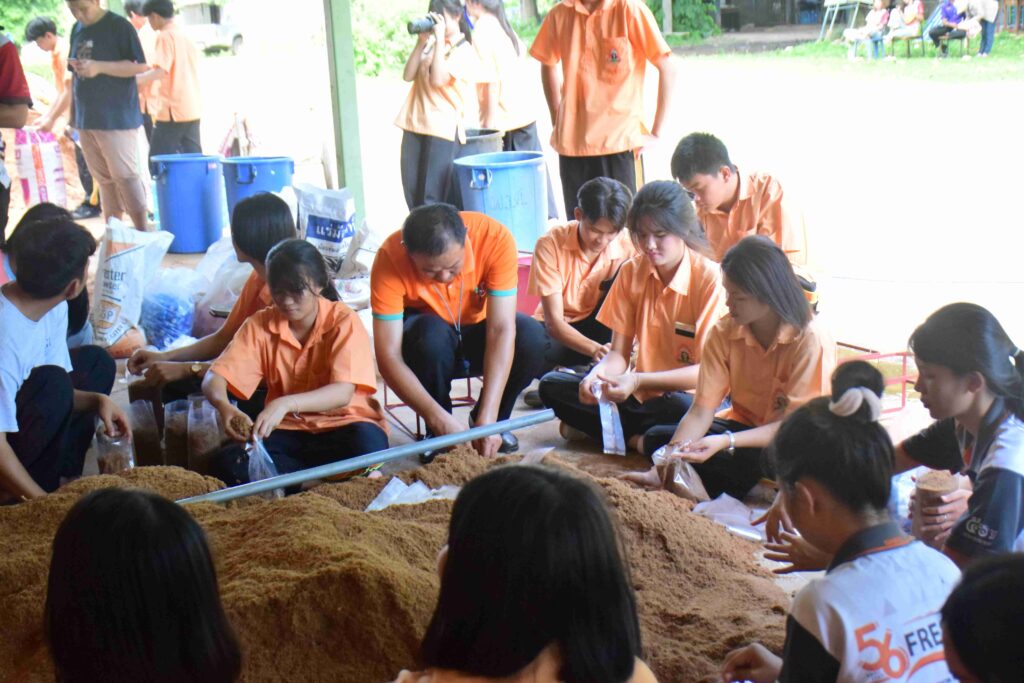
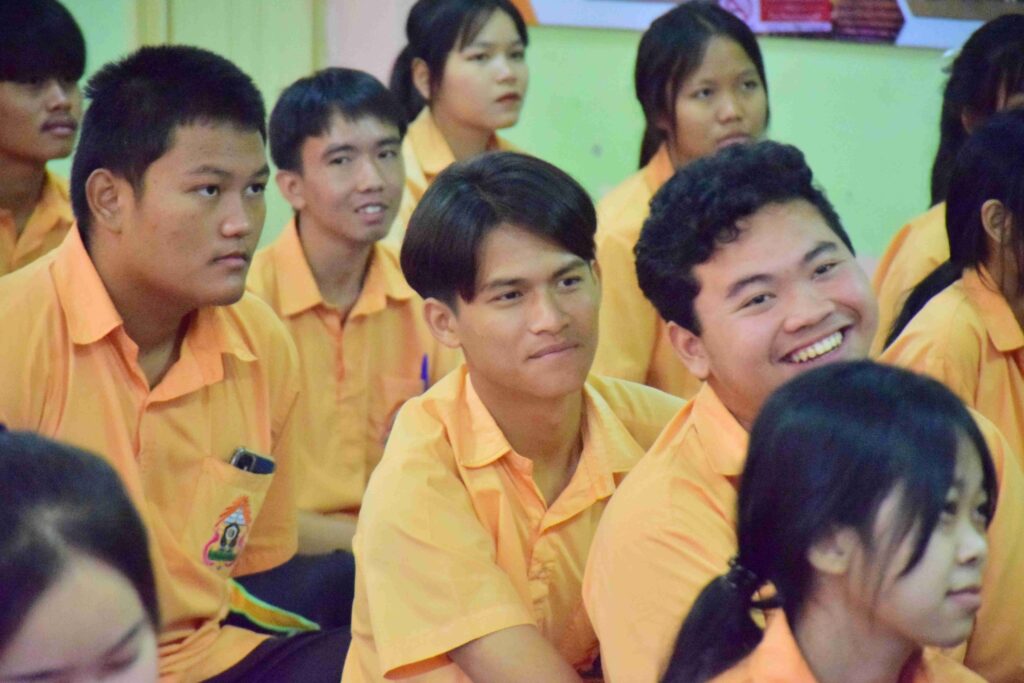
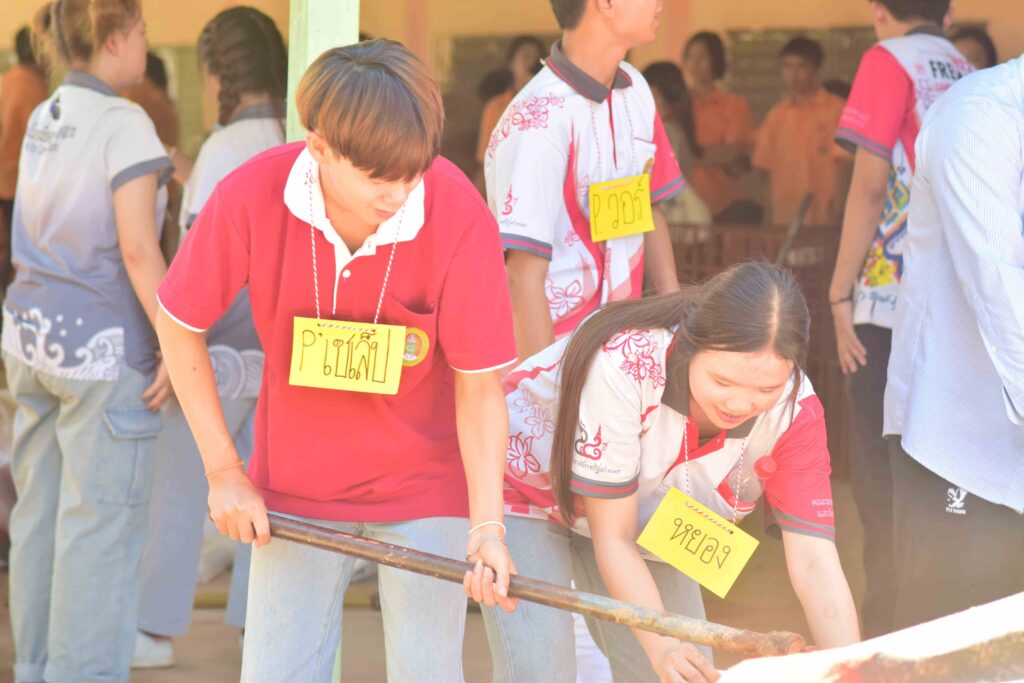
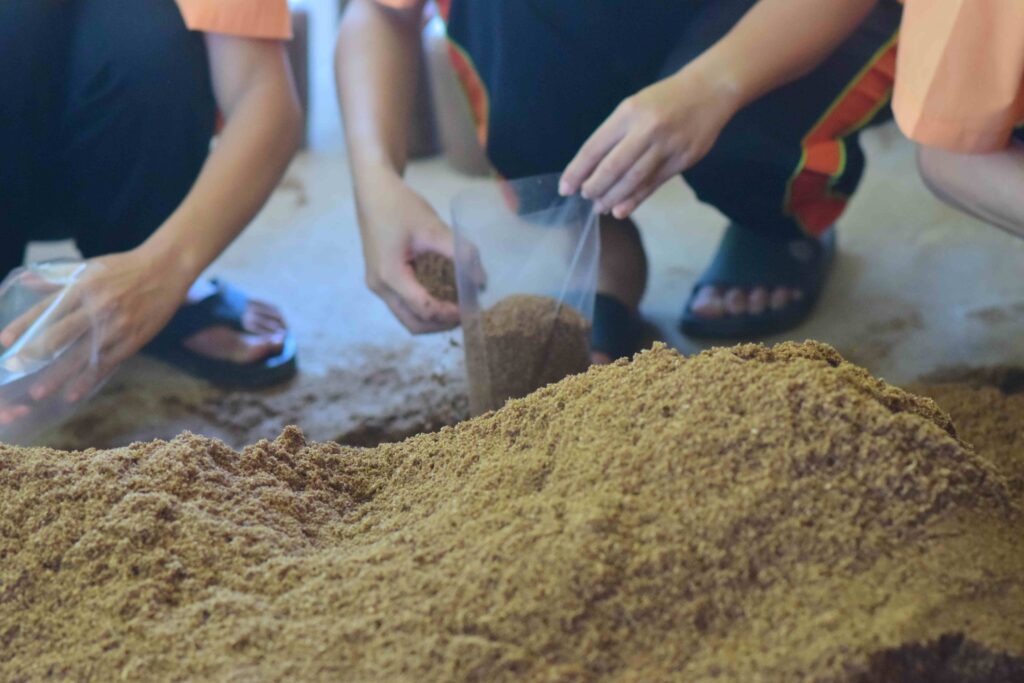



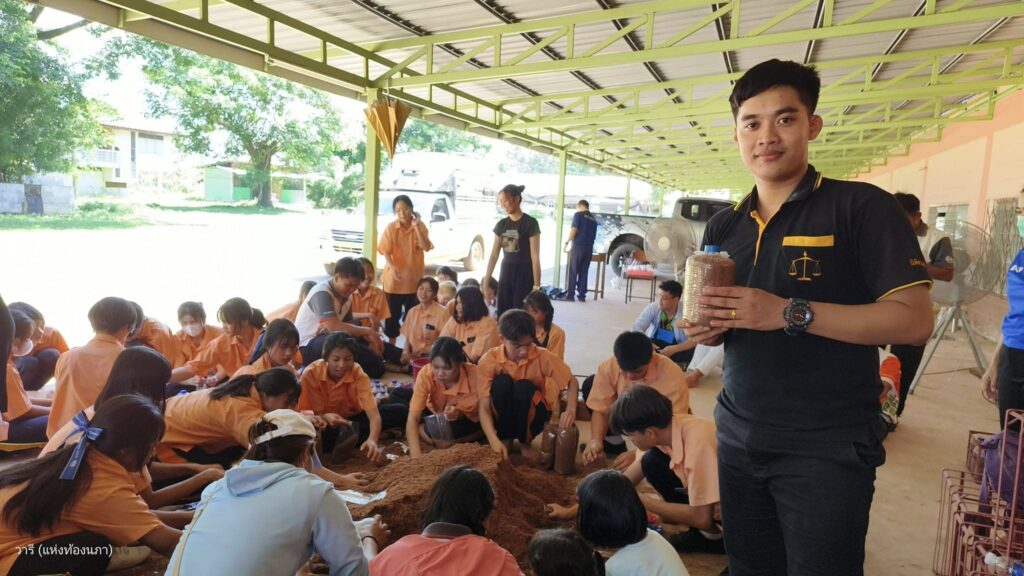
Source : www.1poverty.com
Compiled by: Somchai Krueakam (Tangmo Sakon Nakhon) Implementation: High-value agricultural production chain development project with technology and innovation to enhance the community economy, Sakon Nakhon Rajabhat University research funding source: Local Development Fund Management and Administration Unit (LDMA), follow at Strategic work for comprehensive and precise poverty eradication
